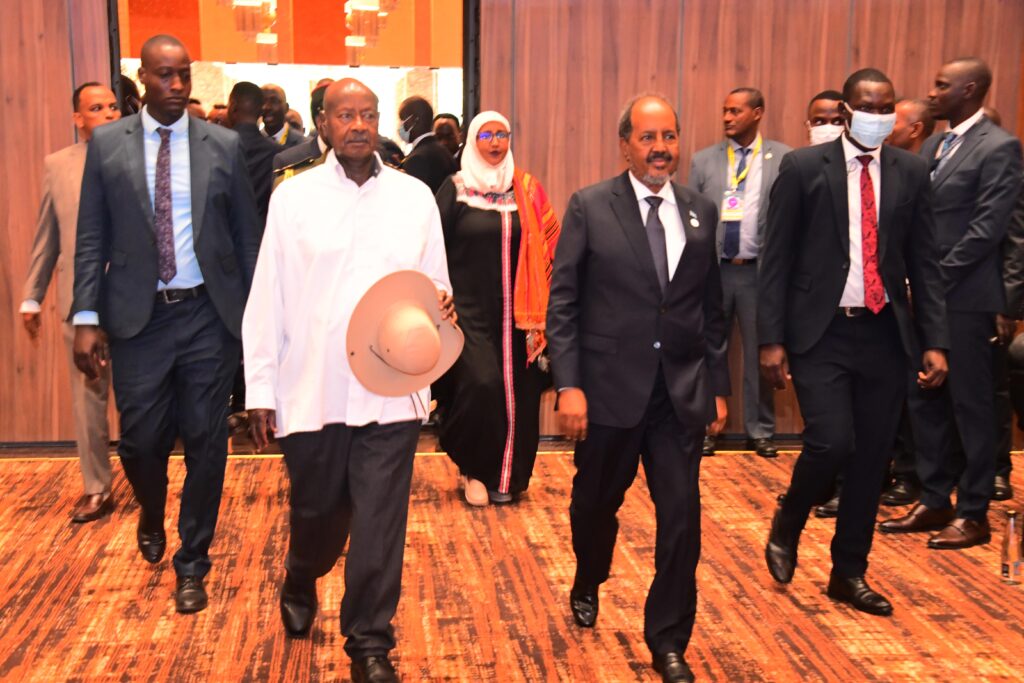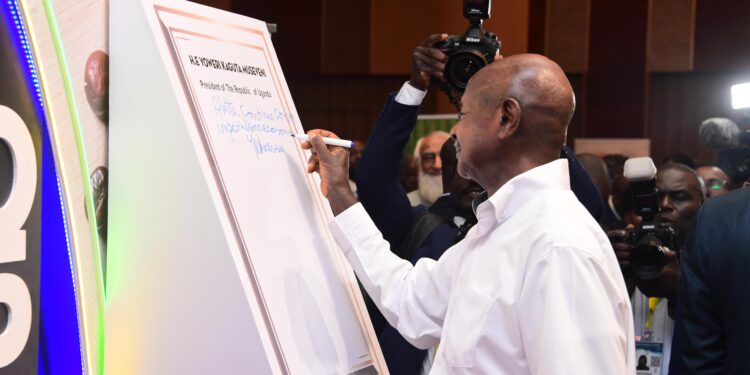Kampala, Uganda – President Yoweri Kaguta Museveni has urged African nations to break free from dependency and realise their potential as a continent of prosperity and self-reliance.
Speaking at the African Union Extraordinary Summit on the Comprehensive Africa Agriculture Development Programme (CAADP) held at the Munyonyo Commonwealth Resort, President Museveni criticised the portrayal of Africa as a “begging” continent.
“This Africa of having no food and begging is not the real Africa but the colonial and neo-colonial Africa. It is a shame,” he declared, calling for a transformation in mindset and policies to unlock the continent’s vast resources and capabilities.
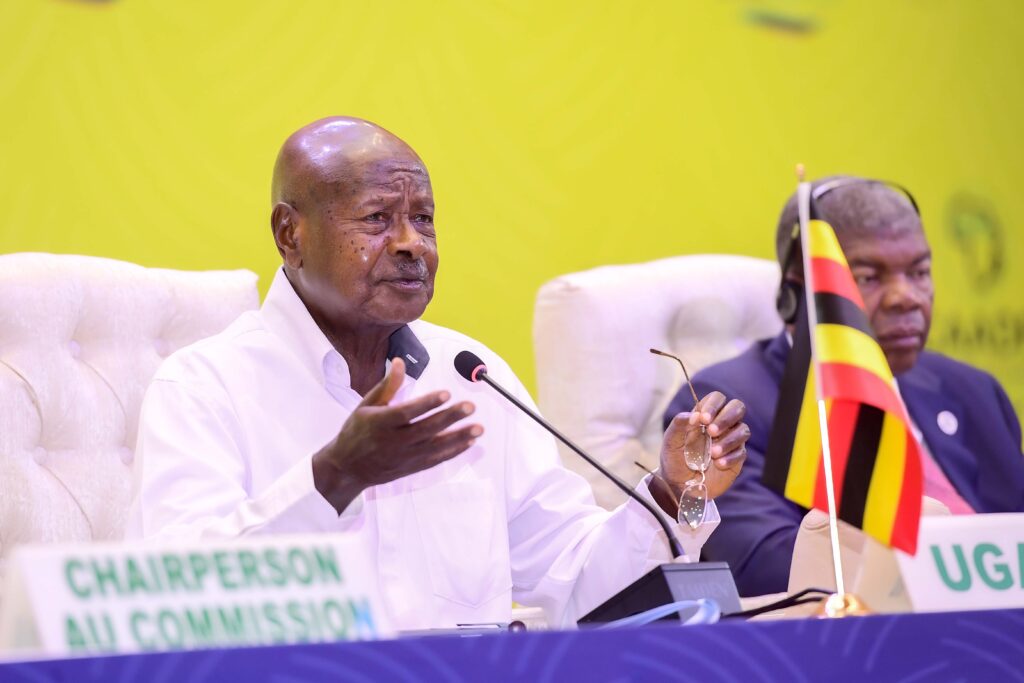
President Museveni emphasised the pivotal role of agriculture in Africa’s economic transformation, highlighting the continent’s natural advantages, such as fertile land and multiple harvest seasons.
He outlined strategies including value addition, commercialisation, and integrating agriculture with manufacturing and tourism to ensure sustainable development.
President Museveni’s call for action resonated with delegates, as he stressed the urgency of moving from subsistence to commercial agriculture and establishing policies to modernise the sector.
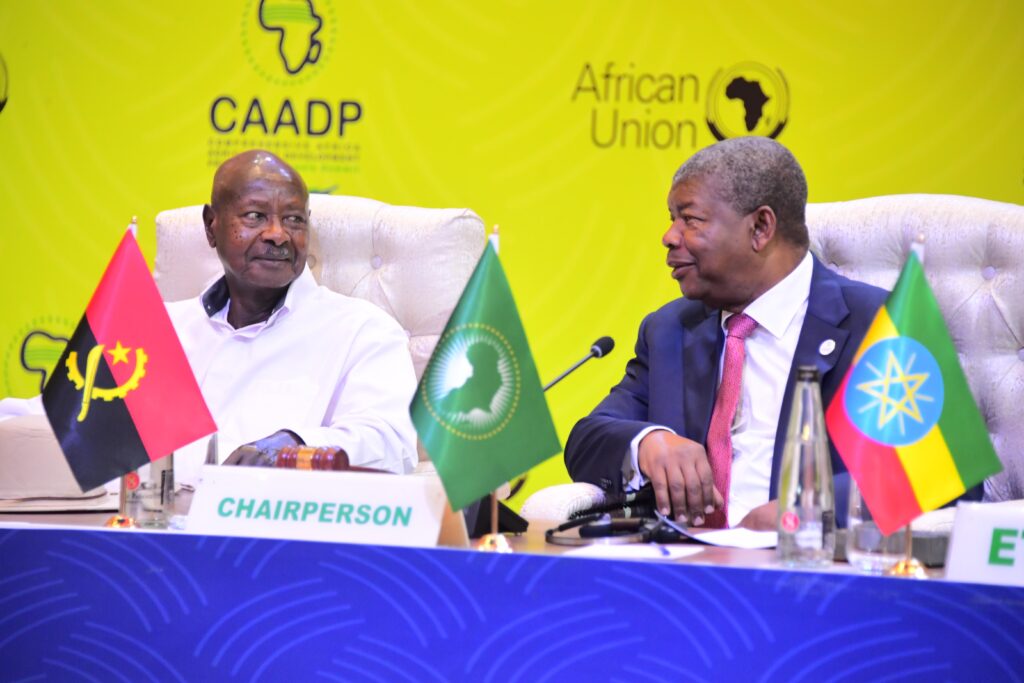
He called on African nations to embrace science, rationalise land use, and eliminate trade barriers within the continent.
“Africa has the resources and capacity to lead. What we need is the determination to transform our agriculture and build industries that create wealth and jobs for our people,” Museveni concluded.
On the issue of NTBs, President Museveni lamented their negative impact on agricultural production and trade within Africa.
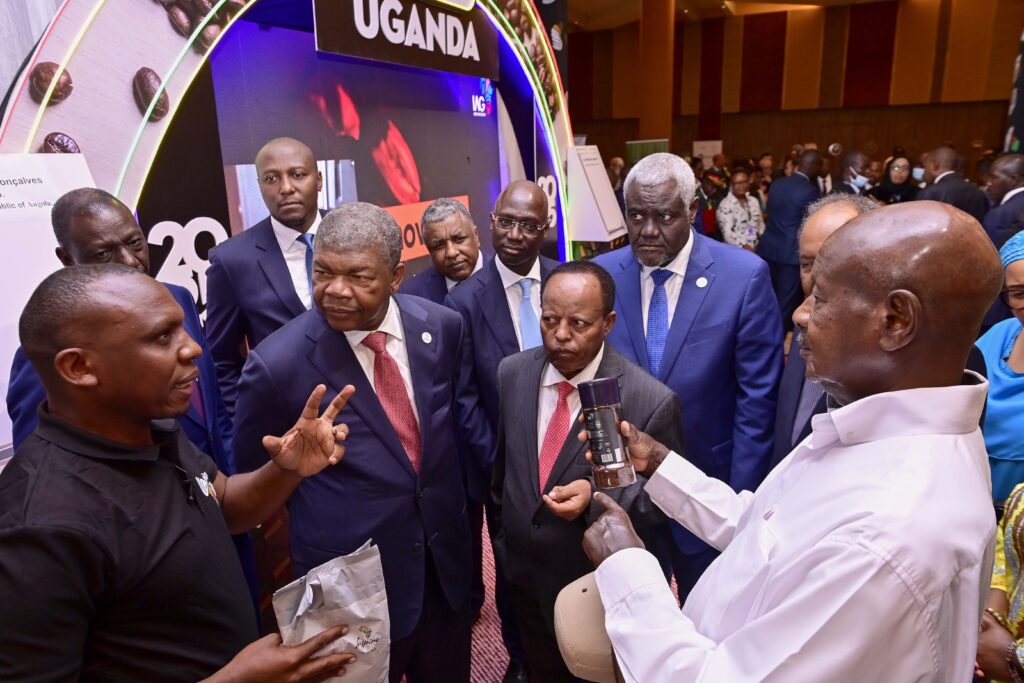
He pointed to Uganda’s capacity to produce diverse agricultural products, including maize, sugar, milk, beef, and poultry, but expressed frustration with erratic trade practices by neighboring countries.
“Why do some brother countries delicense Ugandan products during bumper crop seasons? Let the products compete fairly. When they later experience shortages, they turn to Uganda, but by then, our farmers have been bankrupted and moved to other crops like coffee,” he said.
